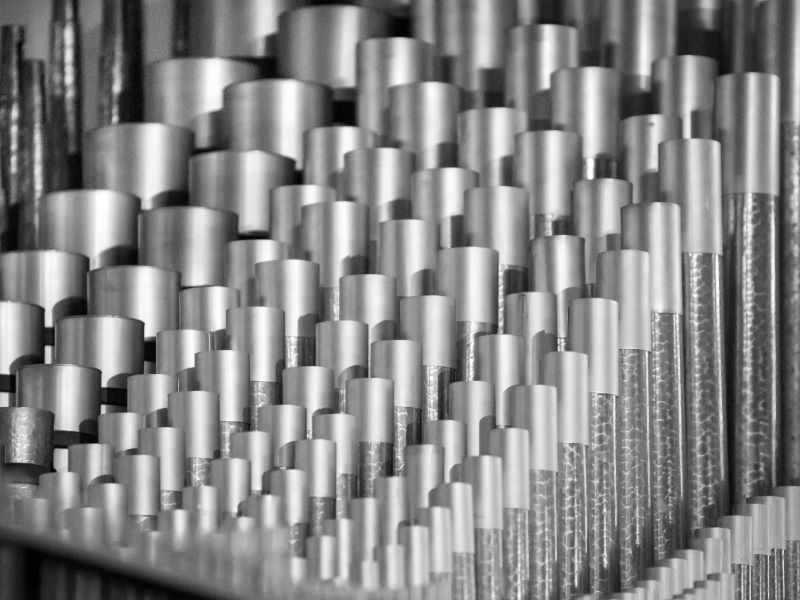 Carbon levy
Carbon levy
Steep rally in carbon prices and CBAM compliance in EU could curtail profits of Indian steel makers
New Delhi: In the wake of the European Union’s (EU) latest framework for the imposition of taxes on embedded carbon imports, Indian steel mills are at the risk of lower profits and a loss of market share in Europe, according to ratings agency ICRA.
The European Union, the second largest steel-consuming block globally, recently signed the Carbon Border Adjustment Mechanism (CBAM), laying the framework for the imposition of taxes on embedded carbon imports from six sectors, which includes steel, aluminium, cement, hydrogen, electricity, and fertiliser.
According to ICRA’s latest research note on the steel sector, CBAM has been designed to bring in a level playing field for EU based steel mills, as many struggled to adjust to the steadily rising carbon prices in Europe, which more than doubled since the start of CY2021.
This resulted in elevated costs associated with the purchase of emission receipts at the EU Emission Trading System (EU-ETS) for exceeding the annual free emission allowances.
In CBAM’s ‘Transitional Phase’ between October 1, 2023 - December 31, 2025, the focus will be on the reporting of carbon, but without any financial adjustment for EU importers.
However, from January 1, 2026, the EU importers will have to buy CBAM certificates, corresponding to the embedded emissions above the EU Emission Trading System (EU-ETS) benchmark levels.
The price of these certificates will be linked to the weekly average carbon prices at the EU-ETS.
Commenting on the industry trends, ICRA’s Senior Vice-President & Group Head, Corporate Sector Ratings, Jayanta Roy said: “Leading domestic primary steel producers have an average CO2 emission intensity of around 2.6 MT CO2/ MT crude steel. This is 12% higher than the global average CO2 intensity for the BF-BoF route. Europe has historically remained an important overseas destination for Indian steel mills, accounting for between 15-40% of our annual steel exports.
“However, the carbon footprint of Indian mills is significantly higher than competing suppliers to the EU.
“For instance, the average emission intensity of South-Korean producers is around 1.6 MT CO2/ MT crude steel. Similarly, with two-third of Turkey’s crude steel production being through the electrical route using scrap, it has a carbon footprint of only 1 MT CO2/MT crude steel.
“Therefore, unless the carbon footprint of Indian steel mills is brought at par with global standards, it can potentially lead to lower profits and a loss of market share in Europe for domestic producers.”
After the end of the transition period ending December 31, 2025, the phasing-out of free allocations to EU based steel mills operating under the EU-ETS will take place parallelly with the phasing-in of CBAM over the subsequent eight years (CY2026-CY2034).
The benchmark EU-ETS free allocations for the BF-BoF route currently stands at a level which is around 40% lower than the average scope 1 emission intensity of the leading domestic primary steelmakers.
ICRA’s analysis suggests that given the modest pace of the proposed reduction in free allocations between CY2026 and CY2029, the taxes emanating from CBAM for EU exports by domestic primary steel producers is expected to remain in the range of US$ 60-70/MT which would weigh down on mill profits.
However, as the pace of phase-out of free allowances picks up thereafter, the incidence of taxes arising from CBAM is expected to significantly increase to US$ 100-165/MT1 between CY2030 and CY2034. For this analysis, ICRA has assumed that carbon price in EU will remain at Euro 90/MT CO2.
Following India’s 2070 net zero target, over the next one-decade, domestic steelmakers have sharpened their focus on reducing their carbon footprint by as much as 25-30% through various technological interventions. Commenting on this trend.
Notable emission-reduction pathways include increasing the share of renewables and scrap in the steelmaking process, usage of superior-grade raw materials or alternative fuels like hydrogen/coal bed methane for decreasing fuel rate in furnaces, investments in logistics infrastructure like slurry pipelines/belt conveyors for reducing indirect emissions associated with raw material movement, and setting up carbon capture utilisation and storage unit, Roy said.
He underscored that this transition towards emerging low-carbon technologies could entail significant capital investments for steel manufacturers
Support Our Journalism
We cannot do without you.. your contribution supports unbiased journalism
IBNS is not driven by any ism- not wokeism, not racism, not skewed secularism, not hyper right-wing or left liberal ideals, nor by any hardline religious beliefs or hyper nationalism. We want to serve you good old objective news, as they are. We do not judge or preach. We let people decide for themselves. We only try to present factual and well-sourced news.







